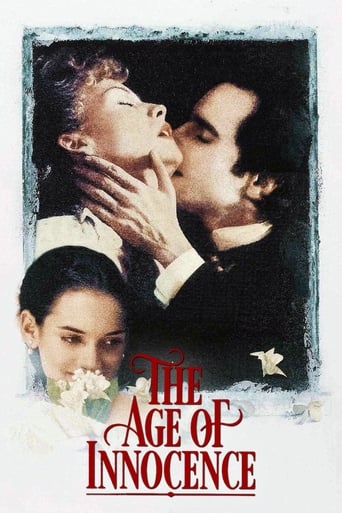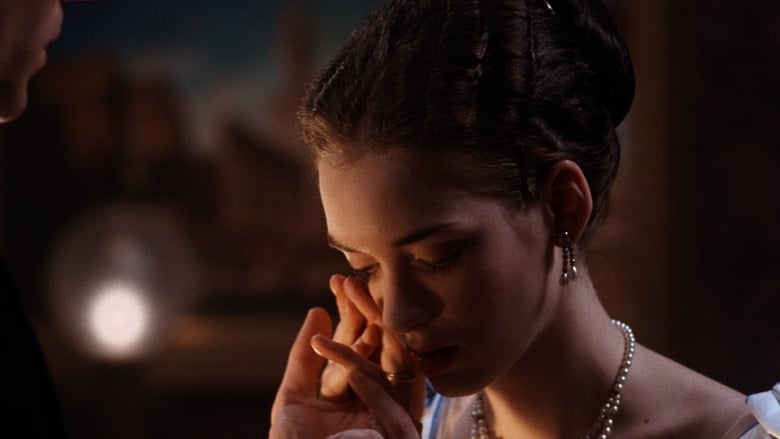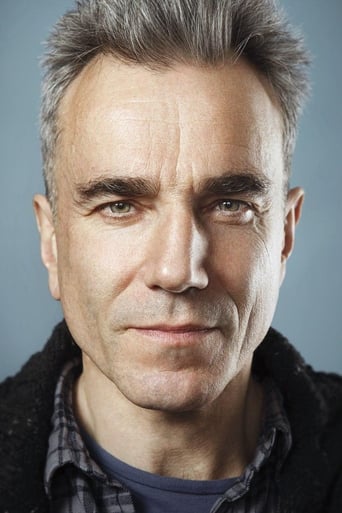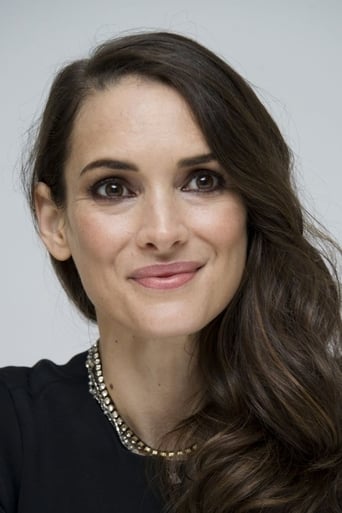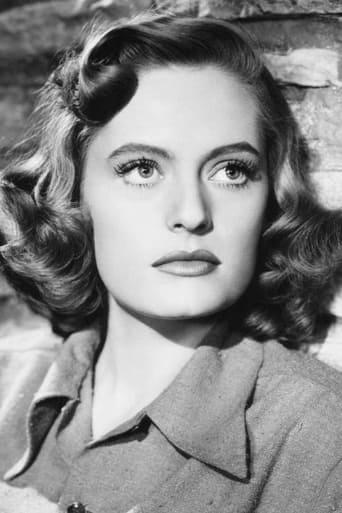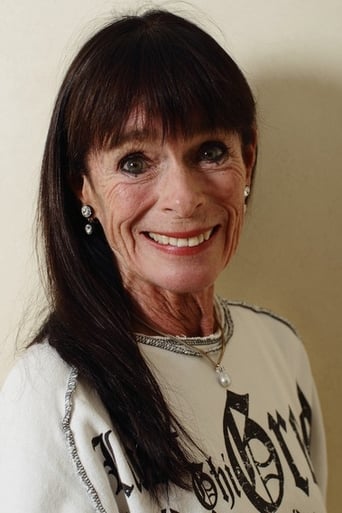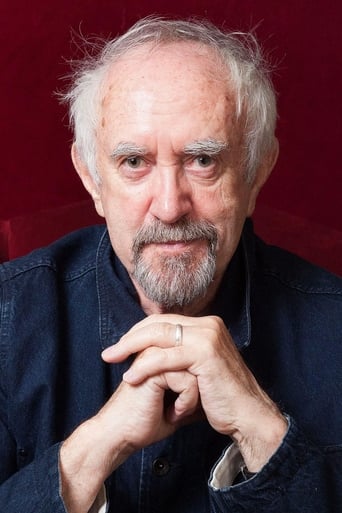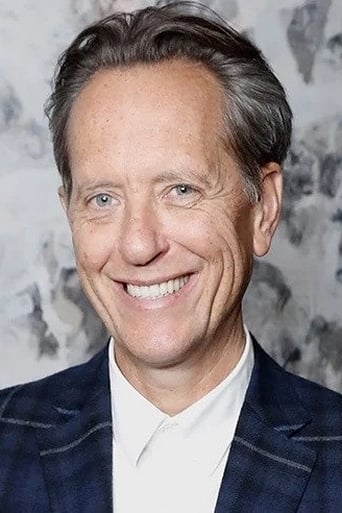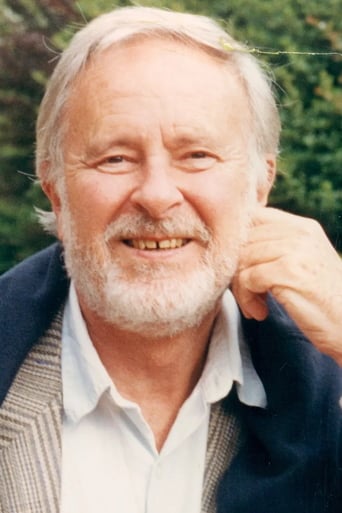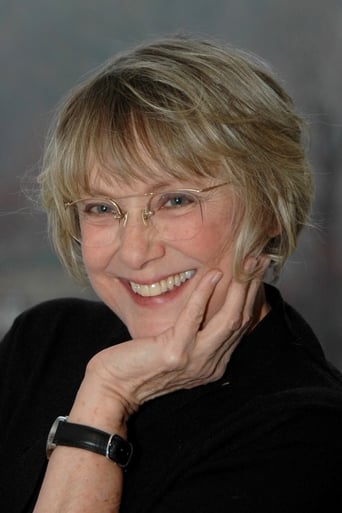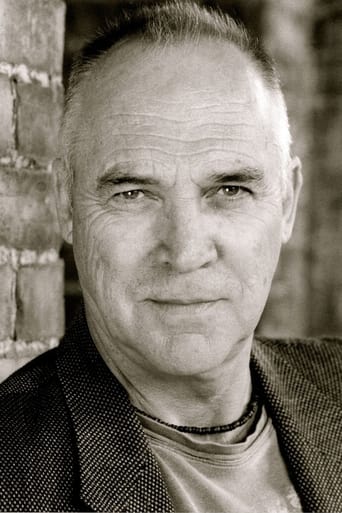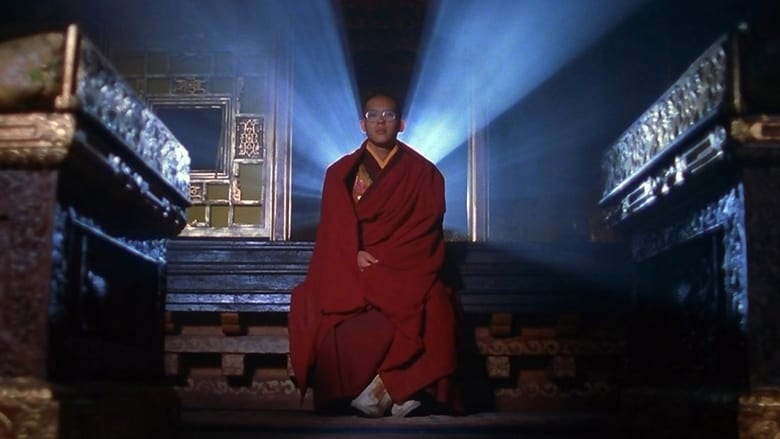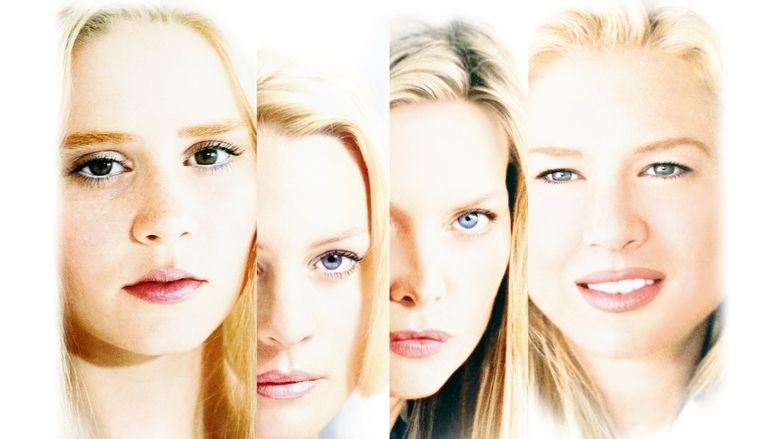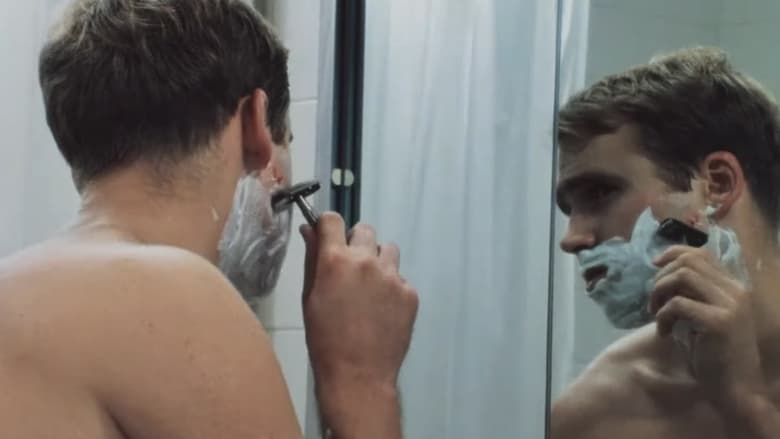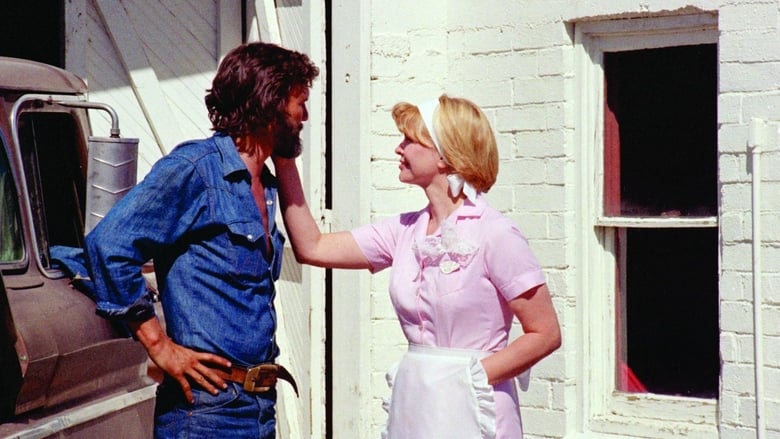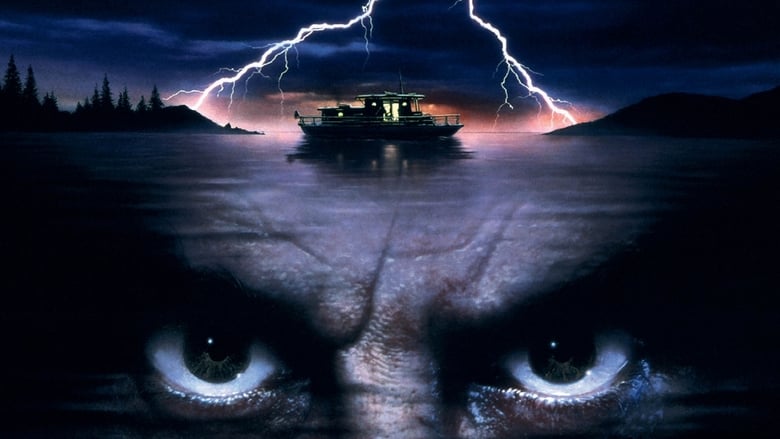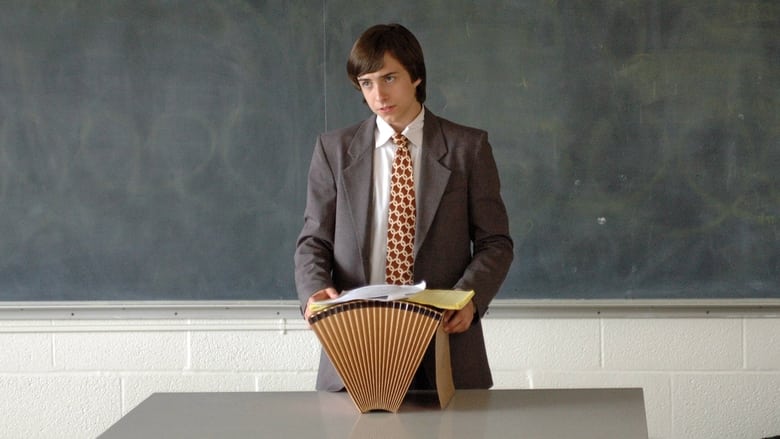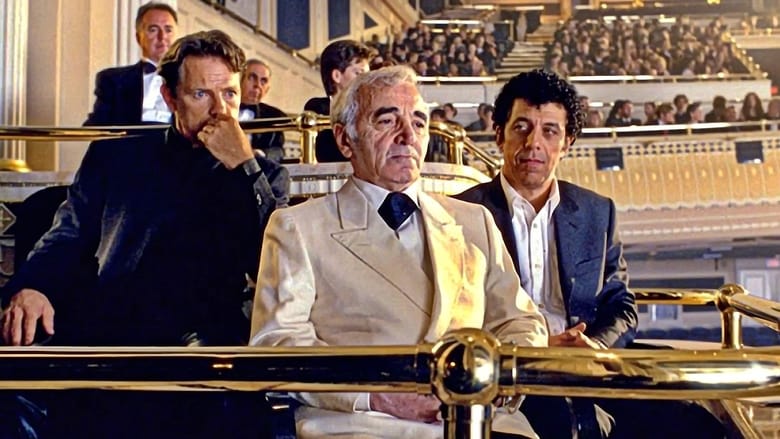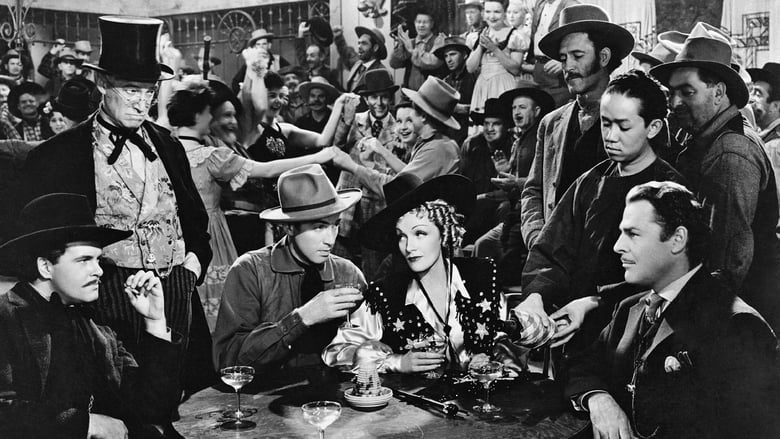In 19th century New York high society, a young lawyer falls in love with a woman separated from her husband, while he is engaged to the woman's cousin.


Similar titles
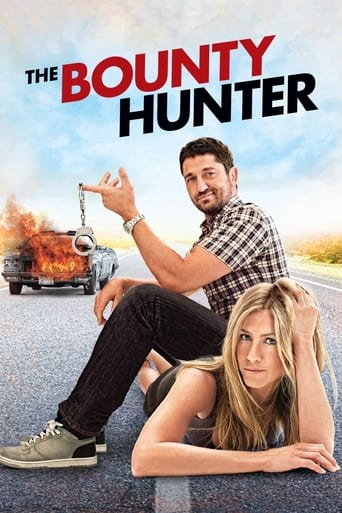
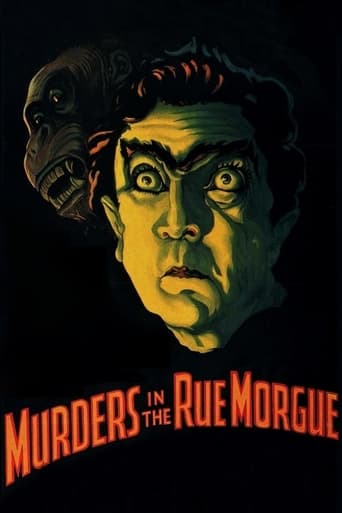
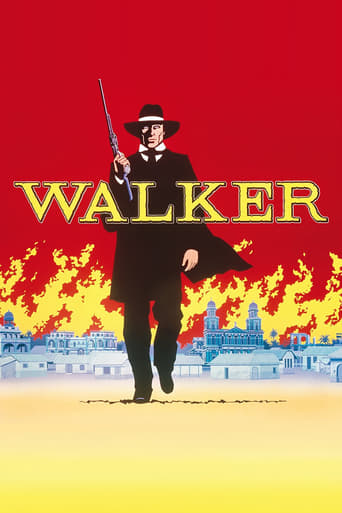
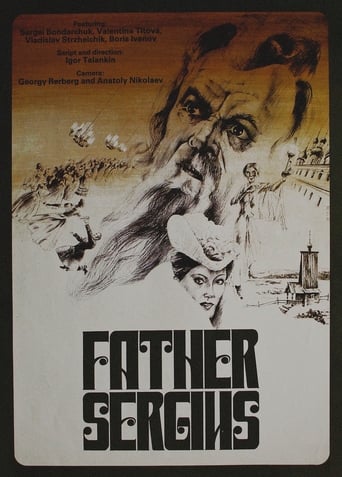
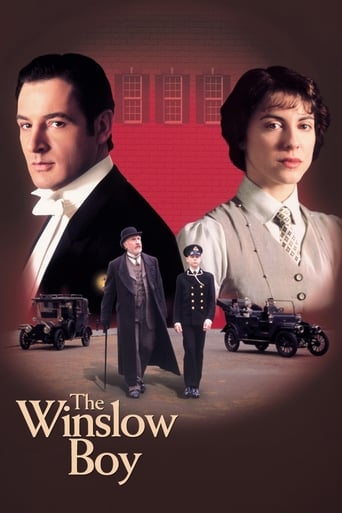
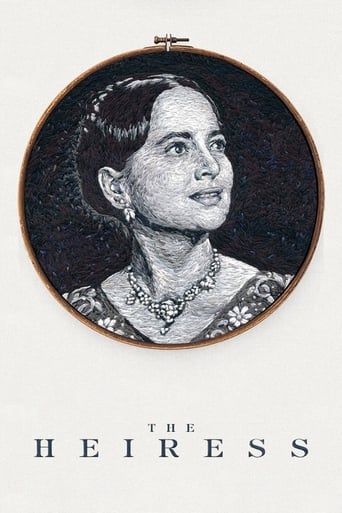
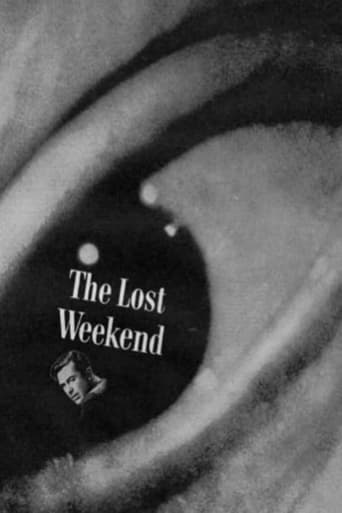
Reviews
If Scorsese determined that he could not film Edith Wharton's masterpiece without the use of narration, he should not have taken on the project. Motion pictures that rely on narration have two strikes on them from the start. For those who do not mind the mixed media, this is a fine adaptation of the novel. One cannot fault the acting or the cinematography, but I do wish Scorsese had found a way to create the film without the narration.
New York doyen Martin Scorsese directs another movie set in the city that never sleeps. However, "The Age of Innocence" is not about streets that are mean, bulls who rage, or fellas who are good. It focuses on the hypocrisy of 1870s high society. Daniel Day-Lewis's respected lawyer is engaged to Winona Ryder's heiress, but then falls for her cousin (Michelle Pfeiffer).The idea behind the story is that the main character is as trapped by his surroundings as is Travis Bickle in "Taxi Driver". There's not an iota of bloodshed in this adaptation of Edith Wharton's novel, but the emotional violence that the characters here perpetrate on each other is analogous to the physical violence in Scorsese's most famous movies. The innocence of the title is as much of a facade as is the lifestyle in "The Graduate".Nonetheless, I couldn't watch the movie without throwing out a few "MST3K"-style comments. For one thing, I kept thinking to myself "This is directed by the man who gave us 'The Wolf of Wall Street'." Also, any look at high society tempts me to launch some barbs. I just find it hard to take such a focus seriously. To crown everything, Daniel Day-Lewis's other 1993 movie was "In the Name of the Father", which couldn't have been more different from "The Age of Innocence".In the end, I recommend the movie. To my knowledge, Martin Scorsese has never made a bad movie. The rest of the cast includes Geraldine Chaplin, Michael Gough, Mary Beth Hurt, Norman Lloyd, Miriam Margolyes, Jonathan Pryce and Joanne Woodward.
Certainly a Change of Pace for Director Martin Scorsese, this is an Effort that is not Completely Successful. Overwhelming in its Depiction of Surface, the Sets, Costumes and Incredible Attention to Detail, the Film's Characters have the Difficult Task of Creating Emotional Attachment when all those Feelings are Suppressed even when it is Convenient to do Otherwise.The Best Scenes are when Newton Archer (Daniel Day-Lewis slightly miscast) Defends Ellen (Michelle Pfeiffer completely miscast). It is here that the Smoldering Fire Sparks a Display of Compassion and Passion where the Movie comes Alive. Also, the Granny Scenes Occasionally Liven Up the Deadly Boring Proceedings because there a Glimpse of Humanity is shown where there Simply is none Existent Elsewhere.These People do Exist in a Completely Non-Expressive Cover of Dress and Dining of the most Elegant and it is these Artificial Environs that are the Real Stars in this Exquisite Exercise in Elegance. Gorgeous to Look at, it is the Characters and the Screenplay that make this a Vacant Victorian Story that is not so Appealing. The Film has the Inenviable Task of making Watchable a Virtually Uninteresting, at least on the Surface, Parade of People that Deserve Little Attention.So the Point is Made and it is not Very Dramatic because there is just no There There and Scorsese takes Another Point of View. That of the Camera.
In the early nineties Martin Scorsese's reputation was largely that of a maker of tough, gritty and violent films about the underworld or modern-day urban street life, often with a maladjusted, anti-social loner at their heart. He had, admittedly, made occasional films on other subjects, notably "The Last Temptation of Christ", but even so he was not the most likely candidate to direct an adaptation, in best Merchant-Ivory "heritage cinema" style, of a novel by Edith Wharton. "The Age of Innocence" was to reveal him as a more versatile director than many had hitherto realised. "Heritage cinema" is often regarded as something uniquely British, although this is a misconception; there are, for example, a number of fine French examples. A number of Americans have played a part in the development of the genre in Britain; James Ivory is American by birth, as was Joseph Losey who directed one of the earliest examples of the style, "The Go-Between". "The House of Mirth" (also based on a Wharton novel) is a film in this style on an American subject, but made in Britain by a British director, Terence Davis. "The Age of Innocence", by contrast, is a piece of genuinely American heritage cinema, although several of the cast are British or Irish. The story is set among the affluent classes of 1870s New York. Newland Archer is a lawyer engaged to be married to the beautiful young socialite May Welland but who finds himself attracted to May's cousin, Countess Ellen Olenska. Ellen is something of a controversial figure in New York's high society. She is separated from her abusive and unfaithful husband, a Polish count. Worse still, rumour has it that she herself has had an adulterous affair with her husband's (male) secretary. Newland first meets Ellen when she consults his firm about a possible divorce, although she eventually decides not to go through with it in order to spare her family further scandal. (Although American law at this period permitted divorce, American high society strongly disapproved of it). As their friendship deepens into love, Newland has to decide whether to follow the desires of his heart or the expectations of society. When I first saw this film in the cinema, back in 1993, I remember thinking that Newland must be mad if he could contemplate leaving the lovely Winona Ryder, with her fragile, haunting beauty, even for someone as undoubtedly attractive as Michelle Pfeiffer. I must say that my wife is still of that opinion, but having seen the film again recently I began to understand his feelings more. Ryder's May, for all her loveliness, is someone who comes across as shallow, conventional and slightly dull. Pfeiffer's Ellen, by contrast, is a woman of greater maturity, experience and worldly wisdom. Her air of exoticism and sophistication might make her suspect in the eyes of society, but it is precisely these characteristics which make her so fascinating to Newland. Newland is not what I have come to think of as a typical Daniel Day-Lewis character. Perhaps there is no such thing as a "typical Day-Lewis character", but the roles I most associate him with are those where he has to play individuals who are angry, outspoken or in some respect social outsiders. In some cases these figures are excluded from society by causes beyond their control, such as Christy Brown in "My Left Foot", excluded by his disabilities, or Gerry Conlan in "In the Name of the Father", excluded by an unjust conviction for a crime he did not commit, or Hawkeye in "The Last of the Mohicans", who feels more at home in Indian society than in the white society to which he belongs by birth. In other cases, however, he plays characters who can be considered anti-social personalities, such as Bill the Butcher in "Gangs of New York" (also made by Scorsese) and Plainview in "There Will Be Blood". In this film, however, Day-Lewis shows his versatility by playing a man who is very much a social insider, one who is fascinated by social outsiders like Ellen but who fears becoming an outsider himself. There is, in fact, some very subtle acting from all three of the leads. Pfeiffer also showed her versatility; her two previous roles before this one, Catwoman in "Batman" and the blue-collar housewife Lurene in "Love Field" had been about as different from Countess Olenska as one could imagine, although she had earlier played another period-drama heroine in "Dangerous Liaisons". The film's only acting Oscar nomination, however, went to Ryder for "Best Supporting Actress", which I felt was appropriate. Although May is the quietest of the three main characters, she is very much at the heart of the drama. (The "innocence" of the novel's title surely refers to her). As the film develops we realise that she might, in fact, be less naive and superficial, and more strong and determined, than she initially seems, making her a surprisingly complex character, and all these complexities are inherent in Ryder's performance. Another good performance in a supporting role comes from Miriam Margolyes as May's formidable grandmother Mrs. MingottThe film is visually sumptuous with strong, bright colours, especially reds, pinks, yellows and greens, much in evidence. Again, these are qualities one would not automatically associate with Scorsese's earlier works, which were often visually dark. ("Raging Bull", for example, was largely shot in black-and-white). Since 1993, however, these qualities have been seen in some of his later works, especially his other period dramas "Gangs of New York" and "The Aviator". "The Age of Innocence" can be seen as a fine example of Scorsese's skills as a film-maker. It is not entirely typical of his work- there is less physical action than in many of his films- but it perhaps seems less untypical today than it did in 1993. 8/10
